
Kutaisi: A Jewel of Georgia
Kutaisi, one of the oldest cities in Georgia, is a blend of rich history and modern charm. Nestled in the heart of the Imereti region, it offers a unique glimpse into the country's past with its ancient landmarks, while also showcasing vibrant urban life. The city is home to the UNESCO World Heritage Site, Bagrati Cathedral, a symbol of Georgia's medieval architecture. Nearby, the Gelati Monastery stands as a testament to the region's religious and cultural significance. For nature enthusiasts, the Sataplia Nature Reserve and Prometheus Cave offer breathtaking underground wonders and dinosaur footprints. Kutaisi's bustling market is a feast for the senses, where you can sample local delicacies and shop for traditional crafts. The city is also known for its warm hospitality, making it a welcoming destination for tourists. Whether you're wandering through its historic streets or exploring its natural beauty, Kutaisi promises a memorable experience.
Local tips in Kutaisi
- Visit the Bagrati Cathedral early in the morning to avoid crowds and enjoy the serene atmosphere.
- Wear comfortable shoes for exploring Prometheus Cave, as there is a lot of walking involved.
- Try the local dish, khachapuri, at the Kutaisi market for an authentic taste of Georgian cuisine.
- Take a guided tour of Gelati Monastery to fully appreciate its historical and architectural details.
- Bring a reusable water bottle; there are many natural springs around the city with fresh drinking water.
Kutaisi: A Jewel of Georgia
Kutaisi, one of the oldest cities in Georgia, is a blend of rich history and modern charm. Nestled in the heart of the Imereti region, it offers a unique glimpse into the country's past with its ancient landmarks, while also showcasing vibrant urban life. The city is home to the UNESCO World Heritage Site, Bagrati Cathedral, a symbol of Georgia's medieval architecture. Nearby, the Gelati Monastery stands as a testament to the region's religious and cultural significance. For nature enthusiasts, the Sataplia Nature Reserve and Prometheus Cave offer breathtaking underground wonders and dinosaur footprints. Kutaisi's bustling market is a feast for the senses, where you can sample local delicacies and shop for traditional crafts. The city is also known for its warm hospitality, making it a welcoming destination for tourists. Whether you're wandering through its historic streets or exploring its natural beauty, Kutaisi promises a memorable experience.
When is the best time to go to Kutaisi?
Iconic landmarks you can’t miss
Bagrati Cathedral
Discover the breathtaking Bagrati Cathedral in Kutaisi, a UNESCO World Heritage site that blends stunning architecture and rich history amidst picturesque landscapes.
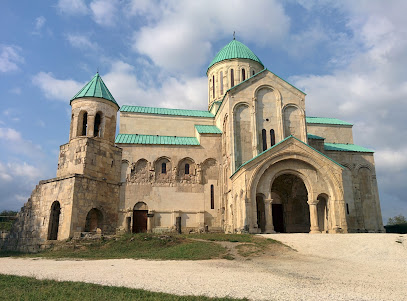
Palaty
Experience the best of Georgian and European cuisine at Palaty Restaurant in Kutaisi, where every meal is a celebration of flavor and culture.
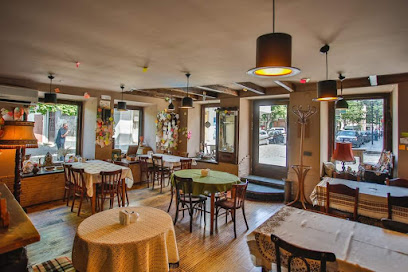
Colchis Fountain
Discover the Colchis Fountain in Kutaisi, a captivating blend of history and artistry, echoing the legends of Georgia's ancient Colchian kingdom.
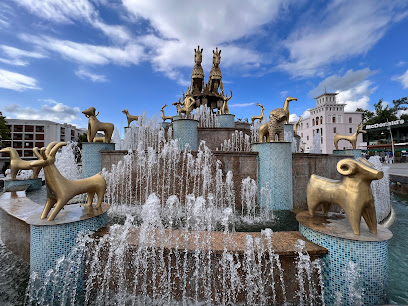
Gelati Monastery
Discover the ancient beauty and spiritual significance of Gelati Monastery in Motsameta, a UNESCO World Heritage site and a gem of Georgian architecture.
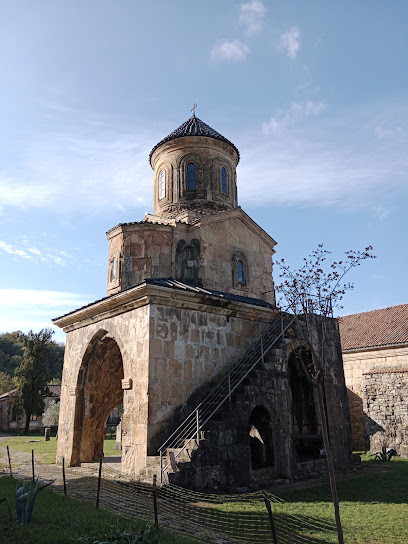
Green Bazaar
Explore Kutaisi's Green Bazaar, a vibrant farmers' market offering fresh produce, local delicacies, and an authentic taste of Georgian culture.
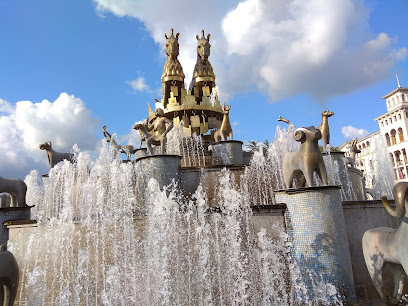
Hacker-Pschorr Kutaisi
Discover the heart of Kutaisi at Hacker-Pschorr, where delicious Georgian cuisine meets lively pub culture in an inviting atmosphere.
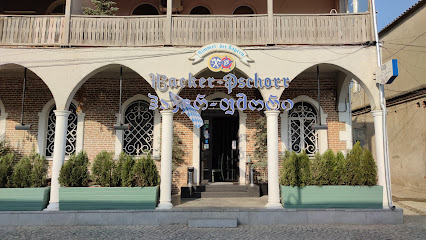
White Bridge
Discover the stunning White Bridge in Kutaisi, a symbol of modern architecture and a gateway to the city's rich cultural heritage.
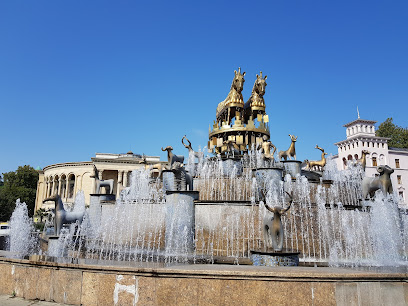
Sataplia Nature Reserve
Experience nature's beauty at Sataplia Nature Reserve in Georgia, home to stunning landscapes, dinosaur footprints, and rich biodiversity.
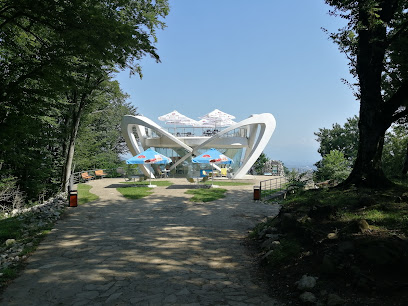
Best Western Kutaisi
Experience comfort and warmth at Best Western Kutaisi, your ideal base for exploring the historic treasures of Kutaisi, Georgia.
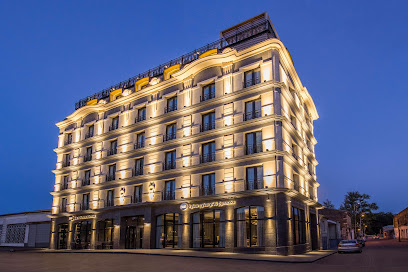
Toma's Wine Cellar
Experience the essence of Georgian winemaking at Toma's Wine Cellar, a family-friendly winery in Kutaisi, perfect for all wine lovers.
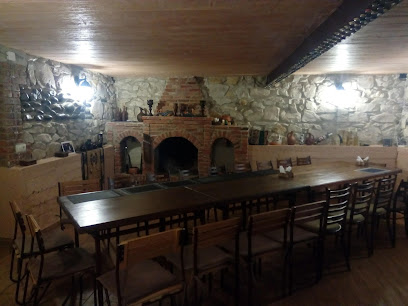
Kutaisi Botanical Garden
Explore the lush landscapes and diverse flora at Kutaisi Botanical Garden, a serene retreat in the heart of Georgia's historical city.
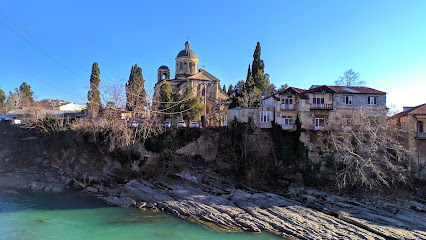
Tea House Foe-Foe
Experience the essence of Georgian culture at Tea House Foe-Foe, a cozy retreat for tea lovers in the heart of Kutaisi.
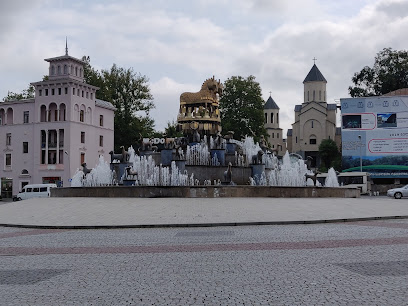
Lilestan
Discover the heart of Georgian cuisine at Lilestan, a vibrant restaurant in Kutaisi offering authentic flavors and a warm, welcoming atmosphere.
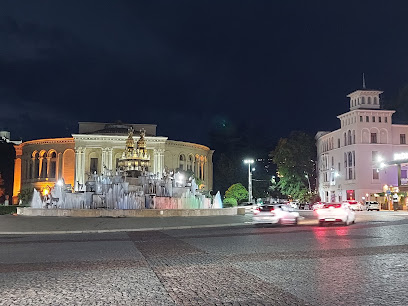
Museum Bar-Restaurant
Experience the rich flavors of Georgian cuisine at Museum Bar-Restaurant, an inviting culinary haven in the heart of Kutaisi.
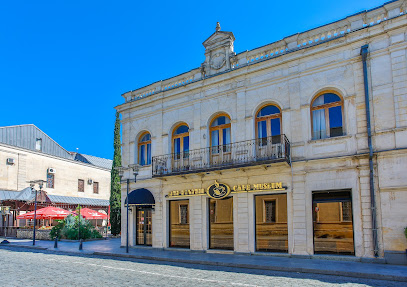
Kutaisi Inn
Discover Kutaisi Inn, a delightful hotel offering modern comfort and easy access to the historic treasures of Kutaisi, Georgia.

Unmissable attractions to see
Prometheus Cave Natural Monument
Discover Georgia's largest cave, a world of stalactites, stalagmites, and underground rivers, illuminated in a symphony of color and sound.
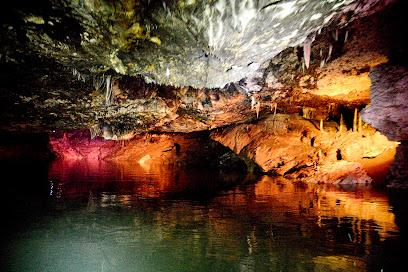
Bagrati Cathedral
Explore Bagrati Cathedral in Kutaisi, a symbol of unified Georgia with stunning architecture and a rich, though turbulent, history.
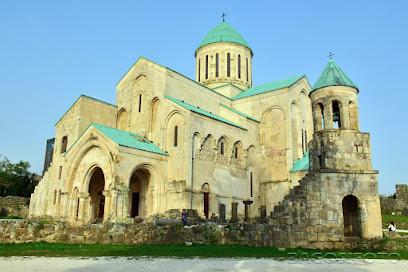
Martvili Canyon
Discover Martvili Canyon: Explore turquoise waters, stunning waterfalls, and lush landscapes in Georgia's breathtaking Samegrelo region.
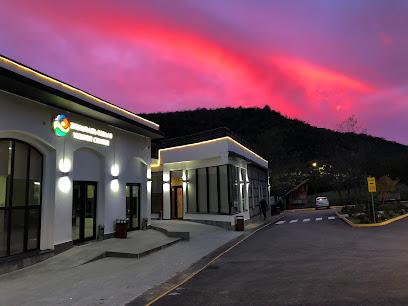
Colchis Fountain
Discover the Colchis Fountain in Kutaisi, a modern landmark celebrating the ancient Kingdom of Colchis with its stunning golden sculptures.
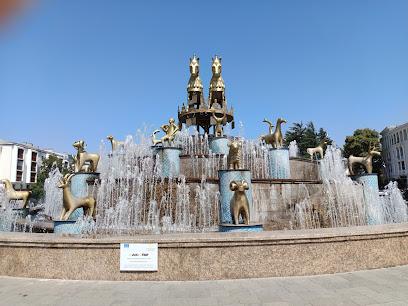
Gelati Monastery
Discover the architectural splendor and serene beauty of Gelati Monastery, a UNESCO World Heritage Site nestled in the hills of Motsameta, Georgia.
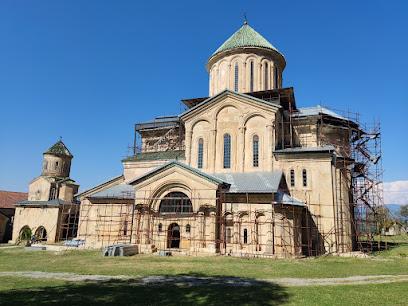
Motsameta Monastery
Discover the serene beauty and rich history of Motsameta Monastery, a must-visit spiritual haven in Georgia with breathtaking views.
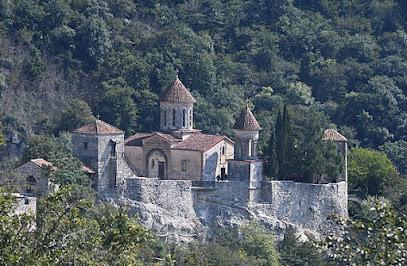
Katskhi Column
Discover the Katskhi Column, a towering symbol of faith and solitude in the heart of Georgia's Imereti region.
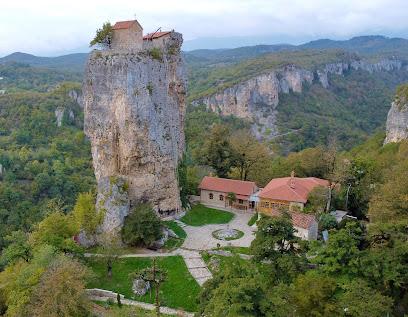
White Bridge
Experience the breathtaking views and serene ambiance of the White Bridge in Kutaisi, a must-visit tourist attraction in Georgia.
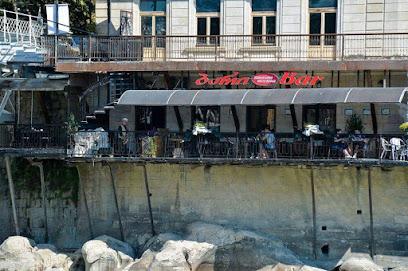
Sataplia Nature Reserve
Explore dinosaur footprints, stunning caves, and panoramic views at Sataplia Nature Reserve, a unique natural attraction near Kutaisi, Georgia.
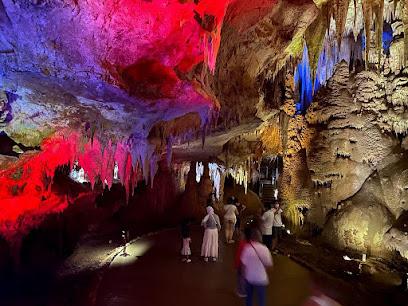
Sulfur Spring Nokalakevi
Escape to Sulfur Spring Nokalakevi in Jikha, Georgia: a serene nature preserve with therapeutic hot springs and stunning landscapes. Relax and rejuvenate!
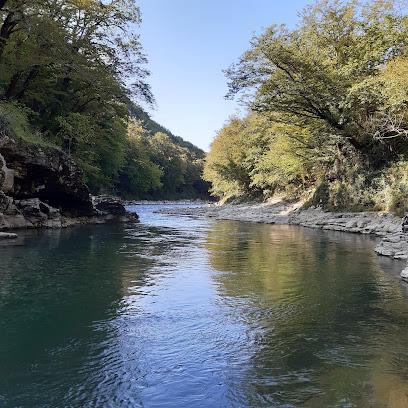
Okatse (Kinchkha) Big Waterfall
Discover the breathtaking beauty of Okatse (Kinchkha) Big Waterfall, a natural monument in Georgia's Imereti region with cascading waterfalls and lush landscapes.
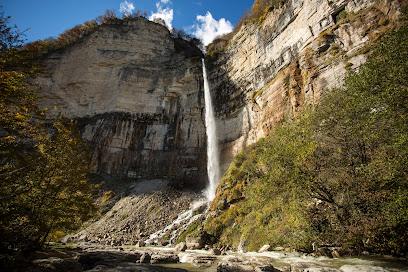
Kutaisi Botanical Garden
Discover a world of flora in Kutaisi's serene botanical garden, home to diverse plant species and a unique chapel inside a 400-year-old oak.
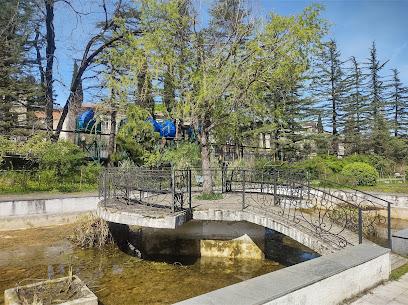
Central agricultural market of Kutaisi
Experience the vibrant culture and flavors of Kutaisi at the Green Bazaar, a traditional market offering fresh produce, spices, and local delicacies.
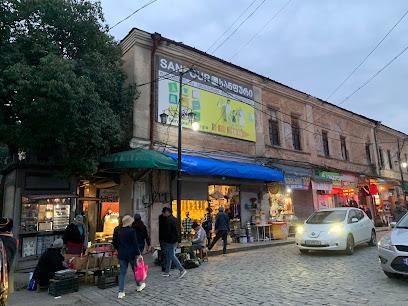
Sairme Resort
Discover Sairme Resort: Georgia's premier balneological spa, offering therapeutic mineral waters and a serene mountain escape year-round.

Vani Archeological Museum
Discover ancient treasures from the Kingdom of Colchis at the Vani Archeological Museum in Georgia.
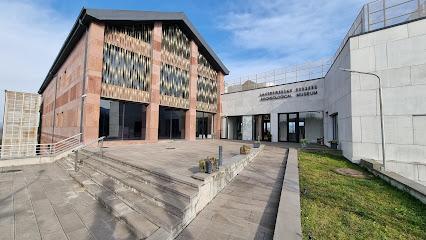
Essential places to dine
Palaty
Discover Palaty in Kutaisi: where traditional Georgian flavors meet European culinary excellence in a cozy setting.
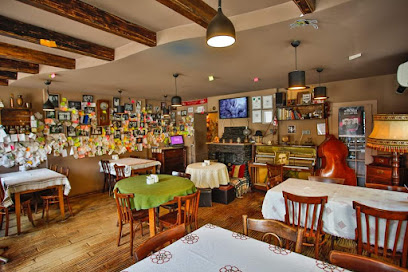
Eldepo
Experience authentic Georgian cuisine at Eldepo in Kutaisi, where traditional flavors meet warm hospitality.
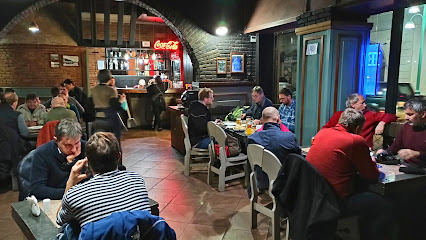
Baraqa
Discover authentic Georgian flavors at Baraqa in Kutaisi – where every meal tells a story.
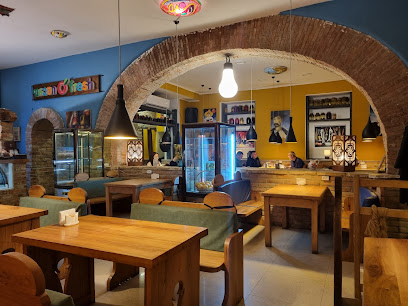
Georgian cuisine Magnolia
Discover authentic Georgian flavors at Georgian Cuisine Magnolia in Kutaisi - where every dish tells a story.
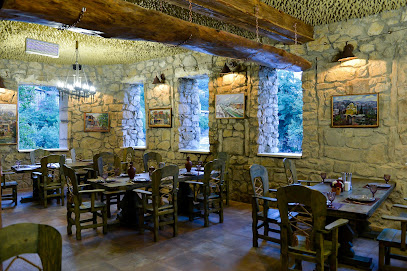
Hacker-Pschorr Kutaisi
Experience authentic Georgian cuisine at Hacker-Pschorr Kutaisi – where every meal tells a story amidst vibrant local culture.
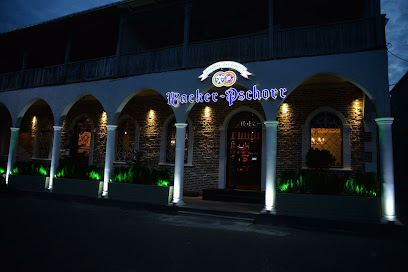
Fleur
Experience the taste of Georgia at Fleur in Kutaisi – where tradition meets culinary excellence.
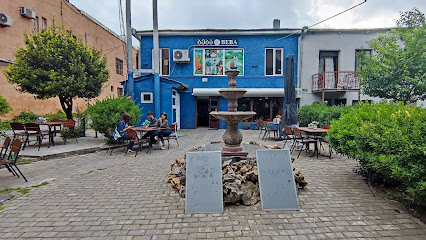
Bikentia's Kebabery
Experience authentic Georgian kebabs at Bikentia's Kebabery in Kutaisi - where tradition meets flavor in every bite.
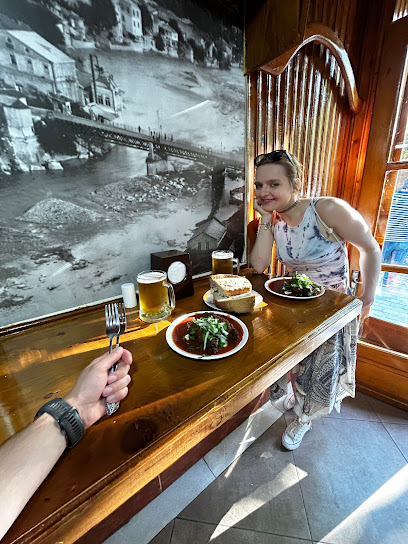
Bar-restaurant Papavero
Experience the best of Georgian cuisine at Bar-Restaurant Papavero in Kutaisi, where tradition meets innovation in every dish.
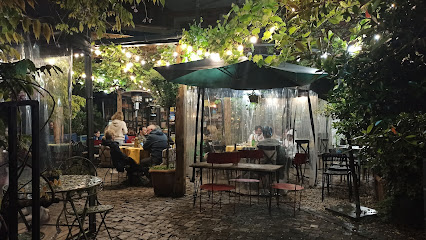
Restaurant Kalakuri
Experience the rich flavors of Georgia at Restaurant Kalakuri in Kutaisi – where tradition meets taste.
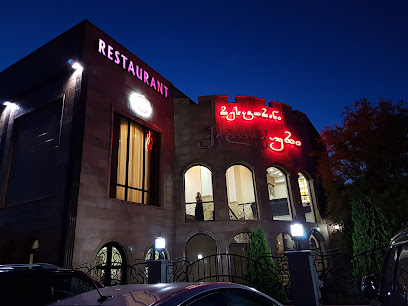
El Paso
Discover El Paso in Kutaisi for an authentic Georgian dining experience filled with traditional flavors and warm hospitality.
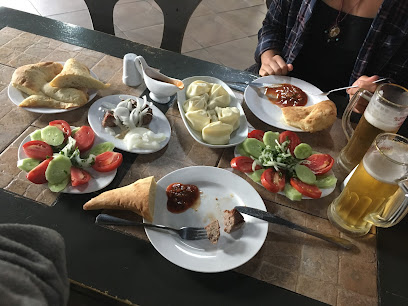
Sisters
Experience authentic Georgian cuisine at Sisters in Kutaisi – where tradition meets taste in a cozy atmosphere.
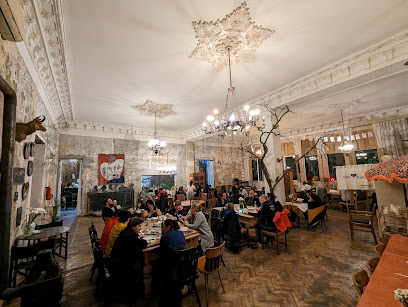
Agerari Georgian Cuisine
Savor authentic Georgian dishes at Agerari in Kutaisi – where tradition meets taste in every delightful bite.
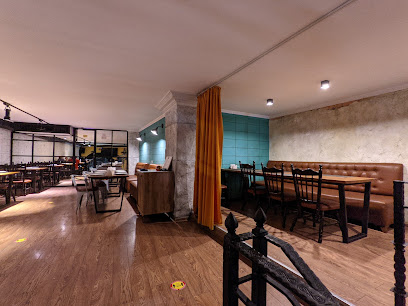
Toma's Wine Cellar
Discover family-friendly fun at Toma's Wine Cellar in Kutaisi – where exquisite Georgian wines meet unforgettable experiences.
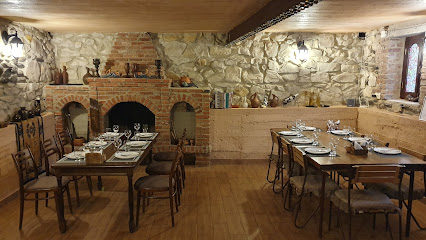
Lilestan
Experience authentic Imeretian cuisine at Lilestan in Kutaisi - where every dish tells the story of Georgian culinary traditions.
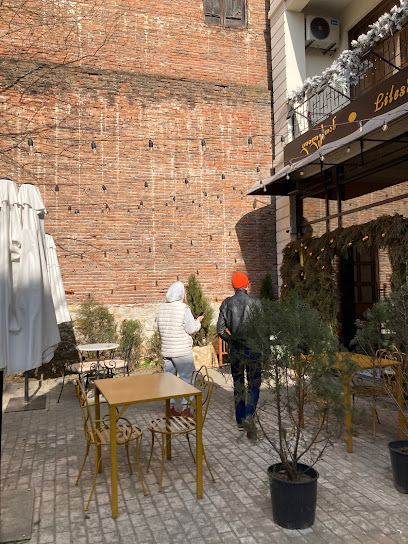
Museum Bar-Restaurant
Discover the perfect blend of art and cuisine at Museum Bar-Restaurant in Kutaisi – where every meal tells a story.
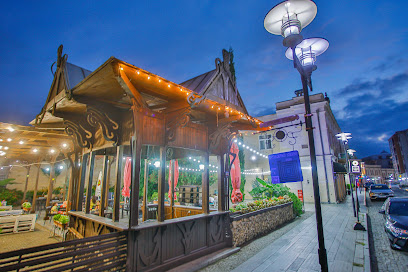
Markets, malls and hidden boutiques
Karvasla
Explore Karvasla, the ultimate shopping destination in Kutaisi, Georgia, where local charm meets modern retail experiences.
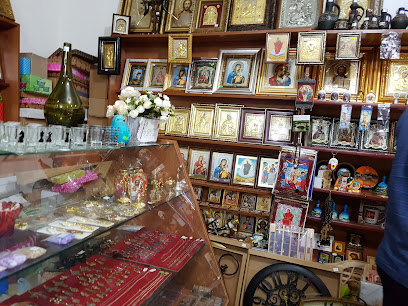
LCWaikiki
Discover stylish, affordable fashion for the whole family at LCWaikiki in Kutaisi, your go-to clothing store for trendy apparel.
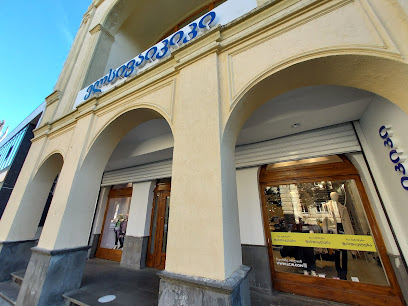
ქართული ხელნაკეთი სუვენირები
Explore authentic Georgian craftsmanship at this delightful gift shop, offering unique handcrafted souvenirs that celebrate the rich culture of Georgia.
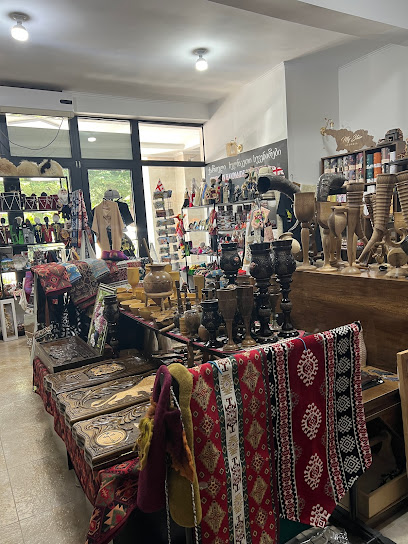
Trade center bazar
Explore the lively Trade Center Bazar in Kutaisi, where local culture meets modern shopping for an unforgettable experience.
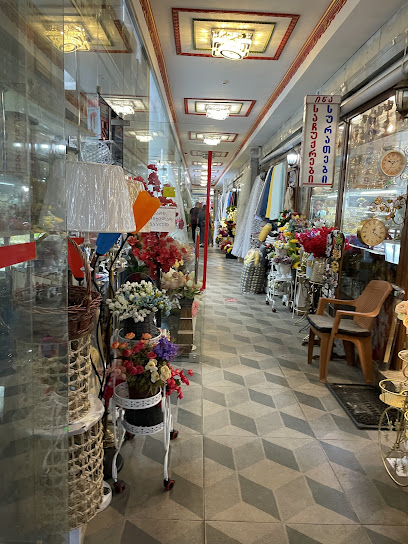
გურმანი
Discover Gurmán in Kutaisi, a gourmet grocery store offering the finest local delicacies and international flavors for culinary enthusiasts.
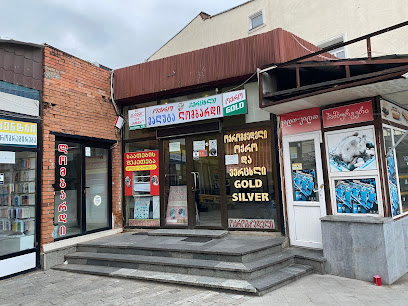
Family shop
Explore the Family Shop in Kutaisi for an unforgettable shopping experience filled with antiques, souvenirs, and local treasures.
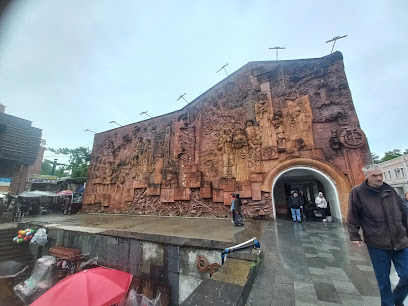
granny’s handmade things / ბებოს ხელნაკეთი ნივთები III. 116
Explore Granny's Handmade Things in Kutaisi for unique, culturally rich, and beautifully crafted souvenirs that embody Georgian heritage.
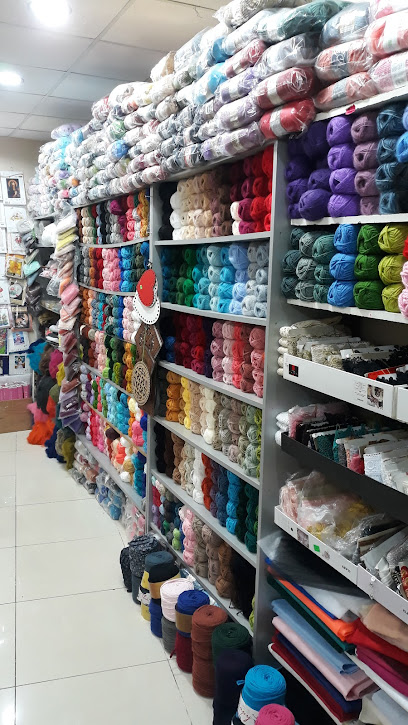
Georgian corner
Explore Georgian Corner in Kutaisi for unique souvenirs and local crafts that embody the beauty of Georgian culture.
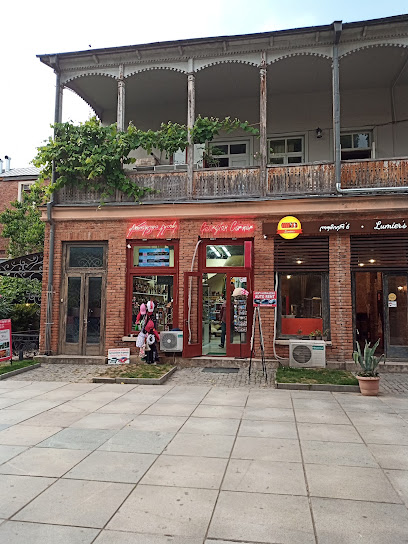
Voulez-vous
Discover a captivating perfume store in Kutaisi, offering unique fragrances inspired by Georgian culture and natural beauty.

Grow shop
Explore the vibrant Grow Shop in Kutaisi for an unforgettable array of plants and gardening supplies that embody the region's green culture.
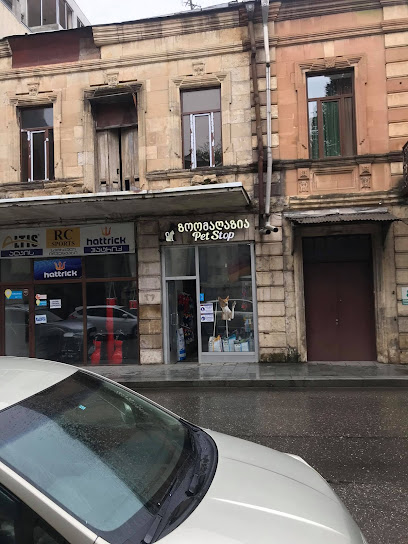
Indian Spice Store
Discover authentic Indian spices and culinary delights at Kutaisi's Indian Spice Store, a treasure for food enthusiasts and culture seekers.
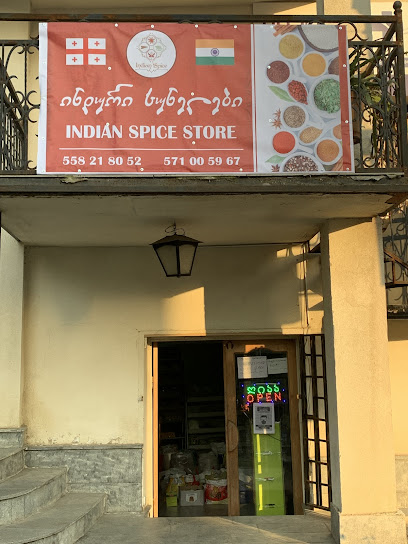
Store groceries
Discover the local flavors of Kutaisi at this charming grocery store, offering fresh produce and authentic Georgian products.
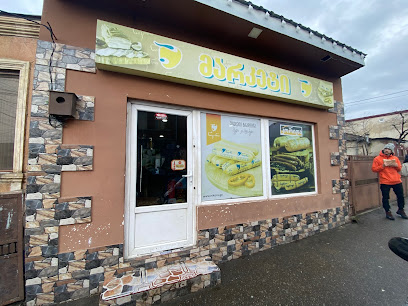
ანდაზი - Andazi
Explore Andazi, the premier souvenir store in Kutaisi, for authentic Georgian crafts and memorable keepsakes that capture the essence of Georgia.
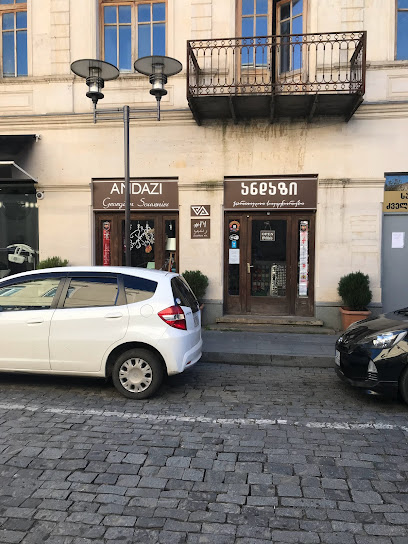
Galery
Discover a world of artistic possibilities at Galery, Kutaisi's premier art supply store, inspiring creativity and craftsmanship.
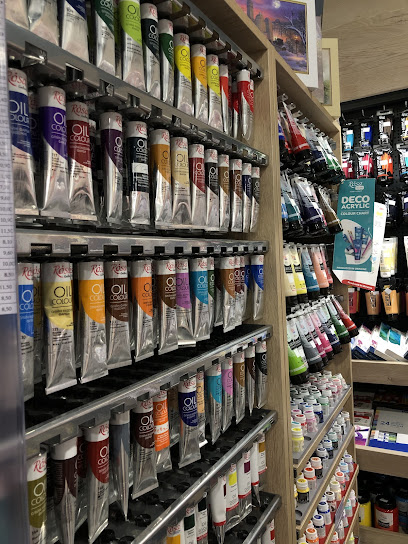
გელათი
Discover the rich heritage of Georgian spirituality at Gelati, a unique church supply store in Kutaisi, showcasing exquisite religious artifacts.
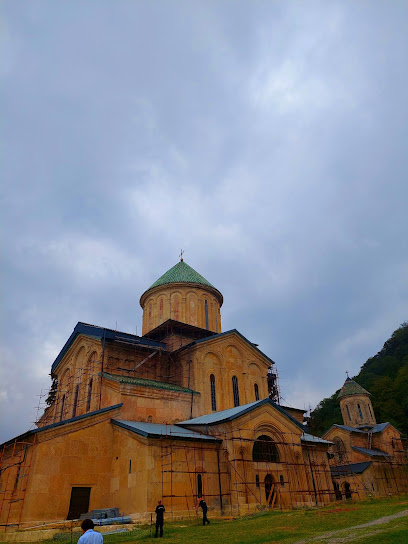
Essential bars & hidden hideouts
Palaty
Discover the flavors of Georgia at Palaty, a charming restaurant offering a delightful blend of European and traditional Georgian cuisine in Kutaisi.
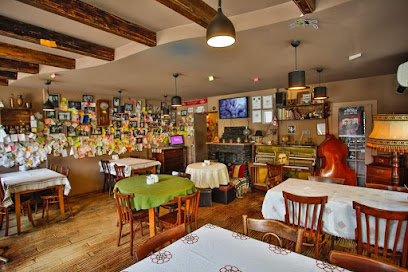
Hacker-Pschorr Kutaisi
Discover the best of Georgian cuisine at Hacker-Pschorr Kutaisi, where tradition meets flavor in a cozy pub atmosphere.
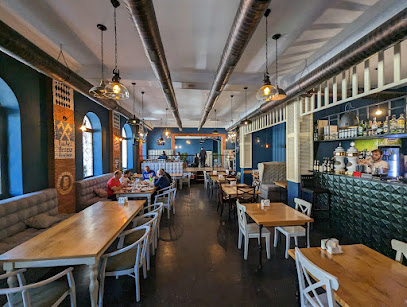
Bar-restaurant Papavero
Experience the best of Georgian cuisine at Bar-Restaurant Papavero in Kutaisi, where tradition meets modern dining in a cozy atmosphere.
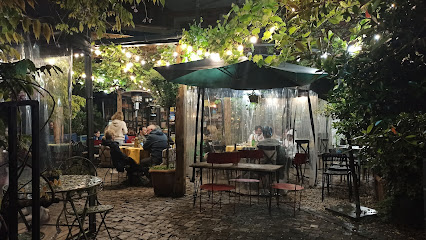
Toma's Wine Cellar
Experience the charm of Kutaisi at Toma's Wine Cellar, a family-friendly winery offering exquisite wines and delightful memories for all ages.
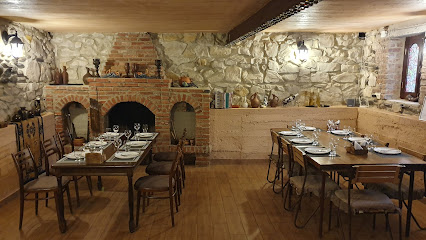
Hoegaarden-Kutaisi
Discover the heart of Kutaisi nightlife at Hoegaarden-Kutaisi, a vibrant pub offering a delightful selection of drinks and a welcoming atmosphere.
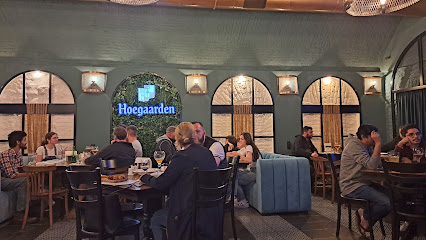
Museum Bar-Restaurant
Experience the best of Georgian cuisine at Kutaisi's Museum Bar-Restaurant, where tradition meets a warm and inviting atmosphere.
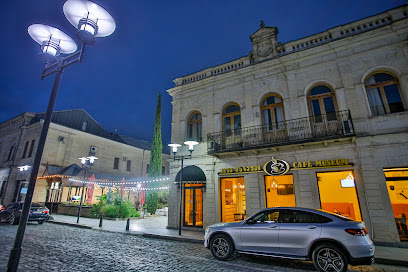
Lowenbrau pub
Savor authentic German cuisine in Kutaisi at Lowenbrau Pub, where hearty dishes and a lively atmosphere await every visitor.
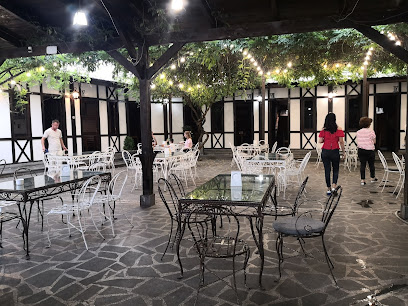
White Stones
Discover the cozy charm of White Stones cafe in Kutaisi, where delicious coffee and a warm atmosphere await every traveler.
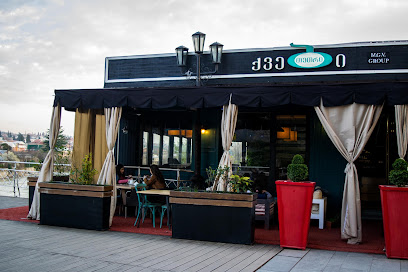
Wine vibes
Discover the essence of Georgian wines at Wine Vibes, an enchanting wine bar in Kutaisi offering tastings, events, and a cozy ambiance.
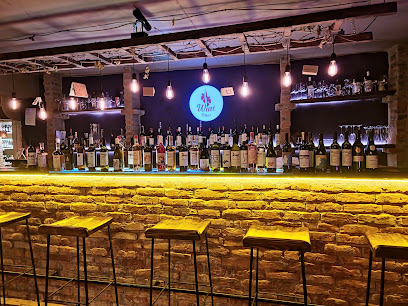
Weihenstephan Kutaisi • Beer Museum
Discover the rich heritage of German beer and cuisine at Weihenstephan Kutaisi Beer Museum, a unique culinary experience in Kutaisi.
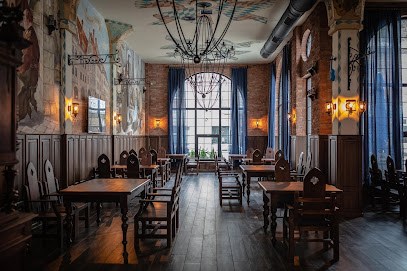
Argonauts Bar-restaurant - არგონავტები ბარ-რესტორანი
Explore the vibrant Argonauts Bar-Restaurant in Kutaisi, where delicious cuisine meets a lively atmosphere amidst the charm of Georgia.
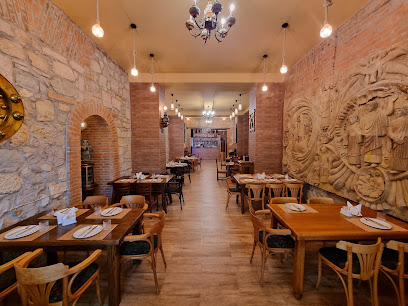
Winetage - ვაინთიჯ
Discover the essence of Georgian wine at Winetage, a premier wine bar and store in Kutaisi, where tradition meets taste.
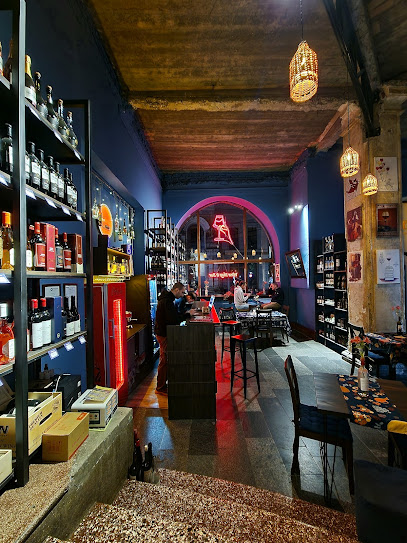
Terrace Gelati
Experience the flavors of Kutaisi at Terrace Gelati, where delicious grilled dishes meet a charming atmosphere for an unforgettable dining experience.
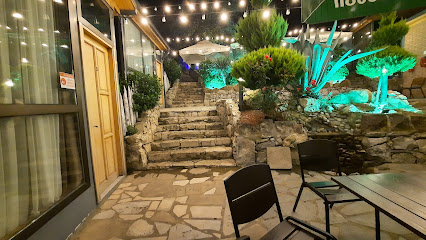
Mary's Irish Pub
Discover the charm of Irish culture at Mary's Irish Pub in Kutaisi, where friendly service meets delicious food and drink in a lively atmosphere.
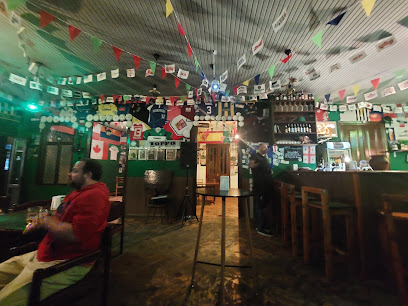
Pub Barca
Discover the lively Pub Barca in Kutaisi, where Georgian culture meets an exciting bar experience with local drinks and vibrant atmosphere.
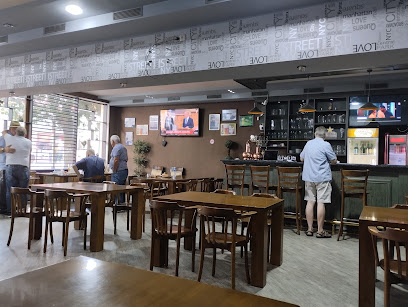
Local Phrases
-
- Helloგამარჯობა
[gamarjoba] - Goodbyeნახვამდის
[nakhvamdis] - Yesკი
[ki] - Noარა
[ara] - Please/You're welcomeგთხოვთ
[gtkhovt] - Thank youმადლობა
[madloba] - Excuse me/Sorryშემიწყალეთ
[shemitsqaleth] - How are you?როგორ ხარ?
[rogor khar?] - Fine. And you?კარგად. შენ?
[kargad. shen?] - Do you speak English?იცი ინგლისურს?
[itsi inglisurs?] - I don't understandვერ გაიგებ
[ver gaigeb]
- Helloგამარჯობა
-
- I'd like to see the menu, pleaseგთხოვ მენიუს ნახო
[gtkhov menuis nakhoo] - I don't eat meatმე ხორი არ ვჭამ
[me khori ar vcham] - Cheers!გაუმარჯოს!
[gaumarjos] - I would like to pay, pleaseგთხოვ გადახდო
[gtkhov gadakdo]
- I'd like to see the menu, pleaseგთხოვ მენიუს ნახო
-
- Help!დამეხმარეთ!
[damexmareth] - Go away!წესენი!
[tseseni] - Call the Police!დაუყვარდეთ პოლიცია!
[dauyvardeth politsia] - Call a doctor!დაუყვარდეთ დოქტორი!
[dauyvardeth doktori] - I'm lostდავაკავებ
[davakaveb] - I'm illვარ ავადმყოფი
[var avadmyopi]
- Help!დამეხმარეთ!
-
- I'd like to buy...მე მინდა ყიდვა...
[me minda qidva] - I'm just lookingმხოლოდ ნახვებია
[mkholod nakhvebia] - How much is it?რამდენია?
[ramdenia?] - That's too expensiveეს ძალიან არასაკმაყოფია
[es dzalian araskmayopia] - Can you lower the price?შეიძინე ფასი?
[sheidzine fasi?]
- I'd like to buy...მე მინდა ყიდვა...
-
- What time is it?რა დროა?
[ra droa?] - It's one o'clockერთია
[erti] - Half past (10)ათის ნახევ
[at'is nakhev] - Morningდილი
[dili] - Afternoonსაღამო
[saghamo] - Eveningღამისა
[ghamisa] - Yesterdayგუშინ
[gushin] - Todayდღეს
[dges] - Tomorrowხვალ
[khval] - 1ერთი
[erti] - 2ორი
[ori] - 3სამი
[sami] - 4ოთხი
[otkhi] - 5ხუთი
[khuti] - 6ექვსი
[ekvsi] - 7შვიდი
[shvidi] - 8რვა
[rva] - 9ცხრა
[tskhra] - 10ათი
[ati]
- What time is it?რა დროა?
-
- Where's a/the...?სადაა...
[sadaa] - What's the address?რაის მისამართია?
[raisi misamartiia] - Can you show me (on the map)?შეიძინე მაფის ზე
[sheidzine mapis ze] - When's the next (bus)?როდის მომსახურება?
[rodiss momsakhureba] - A ticket (to ....)ბილეთი (....თვის)
[bileti ....tvis]
- Where's a/the...?სადაა...
History of Kutaisi
-
Kutaisi is one of Georgia's oldest cities, with its origins tracing back to the 2nd millennium BC. It was the capital of the ancient Kingdom of Colchis, a region famed in Greek mythology as the destination of Jason and the Argonauts in their quest for the Golden Fleece. Archaeological findings in the area reveal a vibrant and developed society during this period, showcasing Kutaisi's historical significance as a cultural and political hub.
-
In the 10th century, Kutaisi became the capital of the united Kingdom of Georgia under the Bagrationi dynasty. The city served as the political and cultural center of the kingdom, especially during the reign of King David IV, also known as David the Builder. Under his rule, Georgia experienced a golden age of prosperity, and Kutaisi flourished with the construction of notable architectural landmarks such as the Bagrati Cathedral.
-
Kutaisi's prominence faced challenges in the 13th century with the Mongol invasions. The city, like much of Georgia, suffered from destruction and economic decline. The Mongol rule disrupted the city's political stability and impeded its development, marking a period of hardship and struggle for Kutaisi.
-
During the 16th and 17th centuries, Kutaisi was frequently contested by the Ottoman and Persian empires. The city changed hands several times, leading to a mix of cultural influences and further instability. This era was characterized by a series of conflicts and shifting control, impacting the city's growth and development.
-
In the early 19th century, Kutaisi came under the control of the Russian Empire. This period marked the beginning of modernization for the city. Russian rule brought new administrative structures, educational institutions, and infrastructure developments. The city began to expand and modernize, setting the stage for its future growth.
-
With the establishment of Soviet rule in Georgia in 1921, Kutaisi underwent significant industrialization. The Soviet era saw the development of factories, educational institutions, and cultural centers. The city became an important industrial hub in the Georgian SSR, contributing to the overall economic development of the region.
-
Following the dissolution of the Soviet Union in 1991, Kutaisi faced a period of economic and political transition. The city struggled with the challenges of adapting to a market economy and the new political realities of independent Georgia. Despite these challenges, Kutaisi has been gradually revitalizing, with efforts to preserve its historical heritage and promote tourism.
-
Today, Kutaisi is celebrated for its rich cultural heritage and historical landmarks. The city is home to UNESCO World Heritage sites such as the Bagrati Cathedral and the Gelati Monastery, which highlight its significance in Georgian history. Kutaisi continues to be a vibrant city, blending its ancient past with modern developments, making it an attractive destination for travelers seeking to explore Georgia's deep historical roots.
Kutaisi Essentials
-
Kutaisi is accessible via the Kutaisi International Airport (David the Builder Kutaisi International Airport), which hosts flights from various European and Middle Eastern cities. Alternatively, you can fly into Tbilisi International Airport and take a train or bus to Kutaisi, which is about 220 kilometers away. The journey by train or bus from Tbilisi takes around 3-4 hours.
-
Kutaisi offers several transportation options. Marshrutkas (minibuses) are a common and affordable way to get around the city and to nearby towns. Taxis are also widely available and relatively inexpensive, but ensure you agree on a fare before starting your journey. For a more relaxed pace, renting a car is a good option for exploring the surrounding areas.
-
The official currency in Georgia is the Georgian Lari (GEL). Credit cards are accepted in most hotels, restaurants, and larger shops, but it's advisable to carry cash for smaller establishments and markets. ATMs are plentiful in Kutaisi, and you can easily withdraw local currency using your debit or credit card.
-
Kutaisi is generally a safe destination for tourists, but it's prudent to take standard precautions. Avoid walking alone at night in less populated areas and keep an eye on your belongings in crowded places. While Kutaisi does not have high-crime areas specifically targeting tourists, always stay vigilant and aware of your surroundings.
-
In case of emergency, dial 112 for immediate assistance. Kutaisi has several hospitals and clinics for medical emergencies. It's recommended to have travel insurance that covers medical emergencies. Pharmacies are available throughout the city for minor health issues and over-the-counter medications.
-
Fashion: Do dress modestly, especially when visiting religious sites. Avoid wearing revealing clothing. Religion: Do respect local customs and traditions. Always cover your head when entering churches and monasteries. Public Transport: Do be respectful and give up your seat to elderly passengers. Don't eat or drink on public transport. Greetings: Do greet people with a handshake or a slight bow of the head. Eating & Drinking: Do try local delicacies and accept food offerings graciously. Don’t refuse hospitality, as it is considered impolite.
-
To experience Kutaisi like a local, visit the city's bustling markets where you can buy fresh produce and traditional Georgian goods. Engage with locals, who are often friendly and willing to share stories about the city's history and culture. Don’t miss visiting the Bagrati Cathedral and Gelati Monastery, both UNESCO World Heritage Sites. For unique experiences, explore the Sataplia and Prometheus Caves, which offer stunning natural formations.
Nearby Cities to Kutaisi
-
Things To Do in Akhaltsikhe
-
Things To Do in Gori
-
Things To Do in Mtskheta
-
Things To Do in Tbilisi
-
Things To Do in Gyumri
-
Things To Do in Alaverdi
-
Things To Do in Haghpat
-
Things To Do in Vanadzor
-
Things To Do in Aparan
-
Things To Do in Telavi
-
Things To Do in Dilijan
-
Things To Do in Tsaghkadzor
-
Things To Do in Signagi
-
Things To Do in Sighnaghi
-
Things To Do in Yerevan












